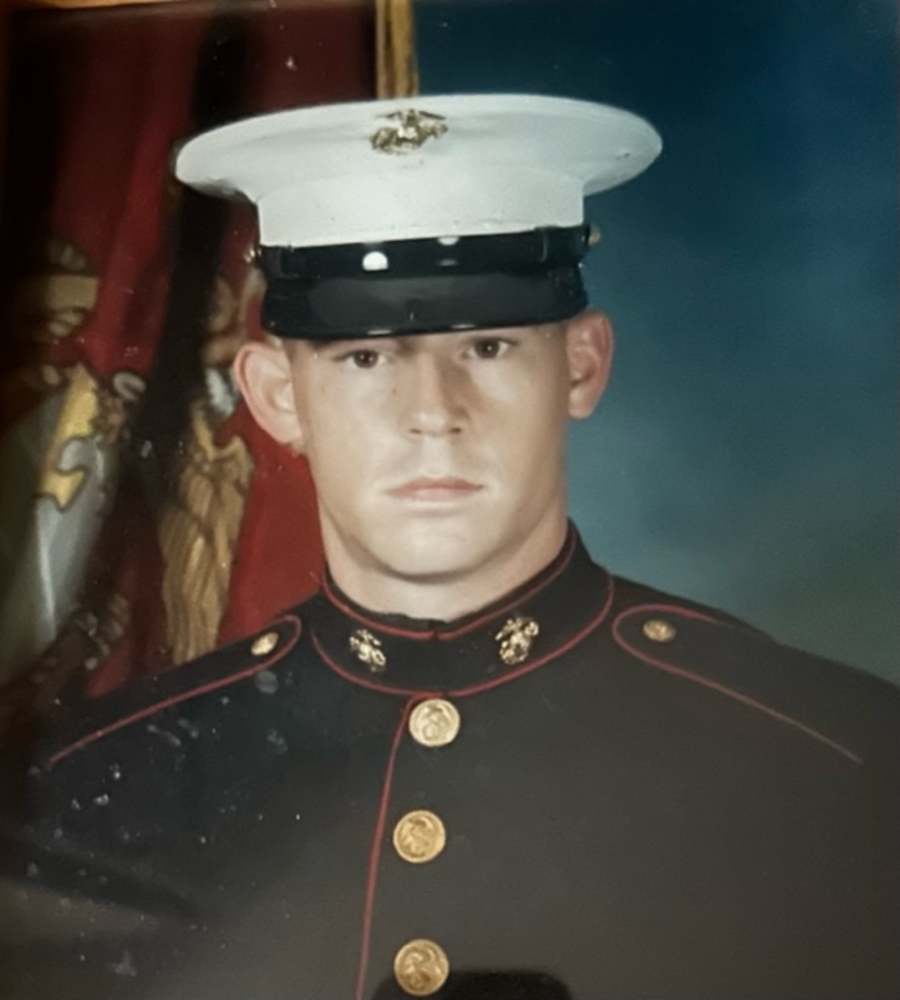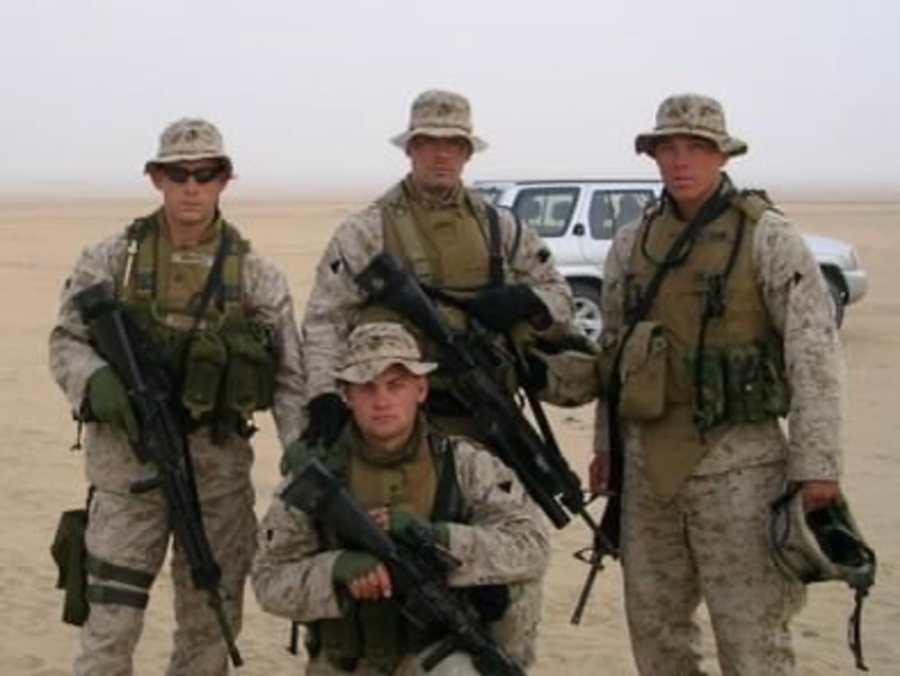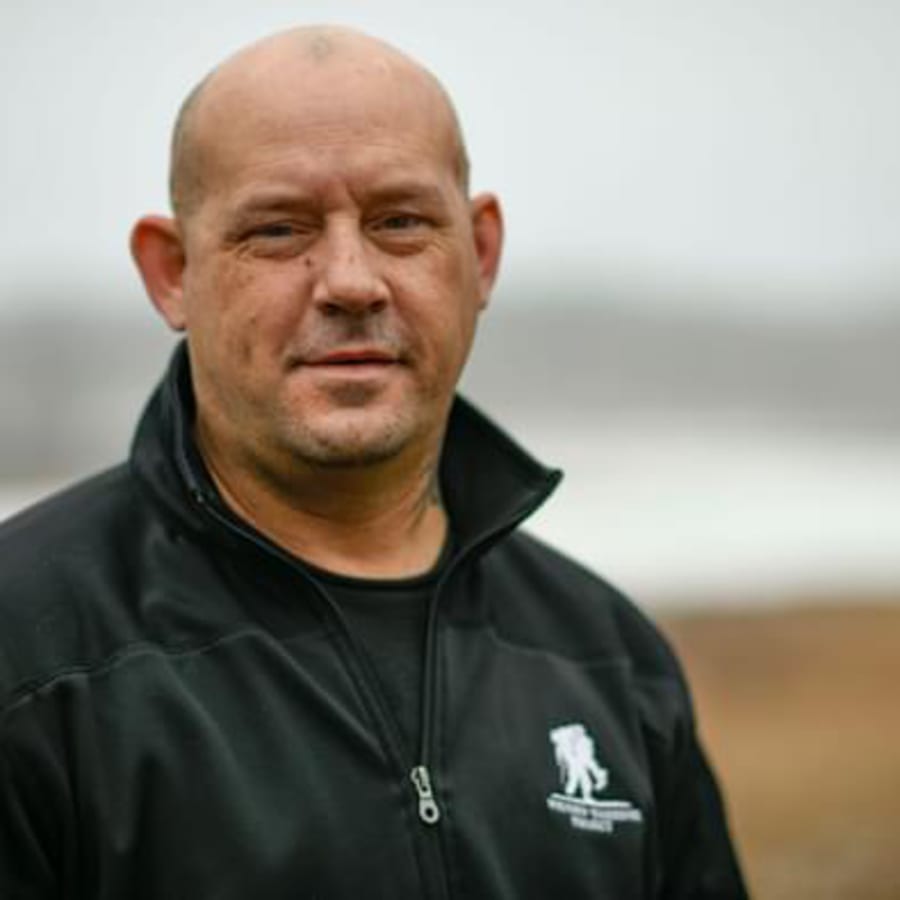SAN ANTONIO – Inspired to serve the country shortly after 9/11, Phil Krabbe, a former U.S. Marine, enlisted in 2002 and served three deployments to Iraq.
“I was infantry, so I was kicking in doors and getting into firefights,” Krabbe said.

He said that was the easy part. The hard part came on May 23, 2006, while on his third deployment.
“We drove down this road, and the vehicle in front of me exploded, and I instantly lost two of my guys and my interpreter and three others that were severely injured,” said Krabbe.
What he saw and had to do on that day changed his life forever.
“I didn’t know how to deal with it, so I just compartmentalized it and shut it off. I didn’t deal with the trauma. I mean, I picked their body parts up off the roadway. That’s how traumatic it was, and I just compartmentalized it. I didn’t have any coping skills to deal with that, so I just internalized it,” said Krabbe.

He said that led to years of alcohol and substance abuse.
On Nov. 30, 2020, Krabbe met his depression head-on.
“My depression kept telling me, you know, you can end this, and that particular day, I agreed with it,” said Krabbe.
As he put pressure on the trigger of a 38 revolver, two thoughts came to mind. He said one was a promise to a friend he had made during his initial attempt at recovery in 2019.
“Number one is I made a promise to Ray Pizarro that I would have the courage to survive. I would have the courage to forgive myself for the things I’ve done in the past, and I need to remember all the pain and sacrifice that I had been through up to that point,” said Krabbe.
With the help of the VA and the Wounded Warrior Project, Krabbe said it was easy to get the help he needed, but it required him to be completely honest with himself and the staff of medical professionals.

“I needed somebody to hold me accountable because I was very good at lying. I was very good at hiding my alcohol and drug abuse, and I didn’t want to fall back to that. So I wanted somebody physically in front of me that could smell me, that could make sure I wasn’t drinking, make sure I wasn’t on drugs,” said Krabbe.
He said the financial insecurity he had created throughout his alcohol and substance abuse was now another factor affecting his recovery. Dr. Erin Fletcher, director of the Wounded Warrior Project’s Warrior Care Network, says it can make symptoms of PTSD, anxiety, and depression worse in veterans.
“It’s really hard to focus on your mental health when your basic needs aren’t being met. If you’re worried about where your next meal is going to come from, if you’re worried about how you’re going to feed your kids, if you’re worried about being evicted or losing your housing, it’s hard for somebody to think, ‘I should stop right now and probably seek some counseling,’” said Dr. Fletcher.
She said 1 in 3 of the warriors they serve who are experiencing financial insecurity are also experiencing suicidal thoughts.
“We want to be the program, that organization, that can provide you with the support and the skills to move through that without ending your life,” said Dr. Fletcher.
Krabbe says he reached out to the Wounded Warrior Project for help, and it worked. In fact, it saved his life.
“All you need to do is tell them that you’re in crisis and you need help, and they’ll be able to guide you to where you need to go. What I would say to another veteran is to be honest, be brutally honest, give them everything and anything that is bothering you, and that way, they know how to help,” said Krabbe.
For more information on Wounded Warrior programs, visit www.woundedwarriorproject.org.
If you or anyone you know is in crisis, contact the 24/7, confidential crisis support line by dialing 988 and then pressing 1. You don’t have to be enrolled in VA benefits or health care to connect.




